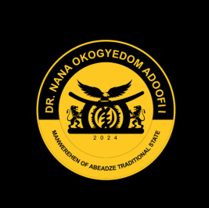By Nana Okogyedom Adoofi I( Ph.D.)
A 24-hour economy operates beyond conventional business hours, ensuring round-the-clock economic activities across key sectors.
Countries such as the United States, the United Kingdom, and China have successfully leveraged this model to drive economic expansion, enhance employment, and boost productivity (World Bank, 2022).
Ghana, with its growing urban centers and youthful workforce, presents significant potential for transitioning into a 24-hour economy.
The Ghanaian economy has demonstrated resilience, recording a GDP growth rate of 3.1% in 2023 despite global economic uncertainties (Ghana Statistical Service, 2023).
However, structural challenges such as limited energy supply, inadequate infrastructure, and regulatory constraints hinder full-scale economic activities beyond standard working hours.
By implementing policies that encourage a 24-hour economy, Ghana could unlock new revenue streams, enhance trade competitiveness, and attract foreign direct investment (FDI).
Notably, a report by the International Labour Organization (2023) highlights that countries with vibrant night-time economies experience an average GDP growth boost of 5% annually.
This article examines how a 24-hour economy can enhance Ghana’s GDP and economic growth through increased employment, sectoral expansion, enhanced trade, and improved infrastructure investment.
It also discusses policy measures that can facilitate this transition and position Ghana as a competitive global economic player.
THE ECONOMIC IMPACT OF A 24-HOUR ECONOMY
Increased Employment and Productivity
The introduction of a 24-hour economy can significantly reduce unemployment by creating jobs in retail, hospitality, transport, health, and financial services. According to the Ghana Statistical Service (2023), the unemployment rate stood at 14.7%, with a high concentration among the youth. A policy-driven expansion of business hours can absorb more of the labor force into formal employment.
Economist Paul Krugman emphasizes that “productivity isn’t everything, but in the long run, it is almost everything” (Krugman, 1994). By extending operational hours, businesses can optimize asset utilization, reduce downtime, and increase output, thereby enhancing GDP contributions.
Expansion of Key Economic Sectors
A 24-hour economy can drive sectoral expansion in manufacturing, agriculture, and services. In manufacturing, extended shifts improve capacity utilization and supply chain efficiency. Ghana’s industrial sector contributes approximately 25.3% to GDP (World Bank, 2023), and leveraging a 24-hour production cycle can significantly boost output.
Similarly, agribusiness can benefit from night-time logistics and extended market hours, minimizing post-harvest losses. The service sector, particularly hospitality and digital finance, can capitalize on round-the-clock operations to attract both domestic and international consumers.
Increased Trade and Foreign Direct Investment (FDI)
Global markets operate 24/7, and aligning Ghana’s business environment with international time zones can enhance trade competitiveness. A study by the International Monetary Fund (2022) indicates that economies with integrated 24-hour business cycles experience a 20% increase in exports.
Ghana’s strategic location as a gateway to West Africa presents an opportunity to position itself as a regional trade hub. Policies that support 24-hour port operations and logistics can enhance trade volumes and attract multinational corporations seeking efficient supply chain management.
Infrastructure Development and Energy Efficiency
A transition to a 24-hour economy requires robust infrastructure, particularly in energy, transport, and security. Ghana has an installed energy capacity of 5,300 MW (Energy Commission of Ghana, 2023), yet erratic power supply remains a concern. Government investments in renewable energy and smart-grid technologies will be crucial to sustaining a non-stop economy.
Similarly, enhancing transport systems such as night-time public transport and logistics hubs can facilitate economic mobility. Improved security policies, including increased policing and surveillance, will ensure safety for businesses operating at night.
POLICY RECOMMENDATIONS FOR A 24-HOUR ECONOMY
To harness the full potential of a 24-hour economy, the Ghanaian government should implement the following policy measures:
Energy Reform: Strengthen energy reliability through renewable energy integration and efficiency programs.
Labor Regulations: Adapt labor laws to accommodate flexible work schedules while ensuring fair compensation.
Security Enhancements: Expand law enforcement operations to support businesses operating at night.
Public Transport Expansion: Implement 24-hour bus and rail systems to facilitate workforce mobility.
Digital Economy Promotion: Invest in fintech and e-commerce to support cashless transactions beyond regular business hours.
Robust Banking Services: Invest and expand the banking services to ensure access to banking services, including real-time transactions, ATMs, and
CONCLUSION
A well-structured 24-hour economy presents Ghana with an opportunity to drive GDP growth, create jobs, and enhance trade competitiveness. While challenges exist, strategic policy interventions can mitigate risks and facilitate a smooth transition. With the right regulatory framework and infrastructure investments, Ghana can position itself as a leading economy in Africa, fully capitalizing on the benefits of a 24-hour economic model.
REFERENCES
Energy Commission of Ghana. (2023). Annual Energy Outlook Report. Government of Ghana.
Ghana Statistical Service. (2023). Quarterly GDP Report. Government of Ghana.
International Labour Organization. (2023). Global Employment Trends Report. Geneva, Switzerland.
International Monetary Fund. (2022). Trade and Economic Development in Emerging Markets. IMF Publications.
Krugman, P. (1994). The Age of Diminishing Expectations: U.S. Economic Policy in the 1990s. MIT Press.
World Bank. (2022). Global Economic Prospects Report. Washington, D.C.
World Bank. (2023). Africa Economic Outlook: Industrialization and Growth. Washington, D.C.
CORPORATE DOCTOR
Email: [email protected] | Tel: 0245 082 660
The writer is a distinguished Ghanaian traditional scholar with over three decades of professional experience with a diverse portfolio in Academic, Regional Integration, Public Policy, Sustainable Entrepreneurship Development, Human Resource Management, Organizational Development, Leadership, Governance, Democracy, Culture and Tradition. He has contributed to the transformative initiatives within Ghana’s MSME sector, championing youth employment and entrepreneurial development and education. As an advocate for inclusion, diversity, and equity, he has consistently prioritized Women, Youth, and Persons with Disabilities (PWDs) in his entrepreneurship development agenda. Beyond his professional endeavours, Dr. Adoofi serves as the Manwerehen of the Abeadze Traditional State in the Central Region of Ghana, blending his cultural heritage with entrepreneurial and visionary leadership.











